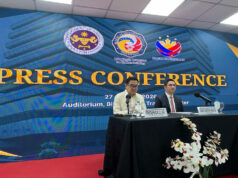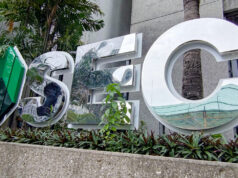SolGen’s role in sedition case questioned
FOUR respondents in the sedition complaint at the Justice department on Friday questioned the Solicitor General’s authority to represent the police, which initiated the case.
Lawyers Arno V. Sanidad and Rene A.V. Saguisag raised the issue before the panel of prosecutors hearing the complaint.
The lawyers are separately representing Jose Manuel I. Diokno, Senators Risa N. Hontiveros-Baraquel and Leila M. De Lima, and former Solicitor General Florin T. Hilbay.
The panel of led by Senior Assistant Prosecutor Olivia L. Torrevillas allowed the respondents to submit their motion and for the Office of the Solicitor General to comment within five days.
Police last month filed a complaint of inciting to sedition, cyberlibel, libel, estafa, harboring a criminal and obstruction of justice against Vice President Maria Leonor G. Robredo and 35 other people whom it accused of circulating a video linking President Rodrigo R. Duterte and his family to illegal drugs.
Also sued was Peter Joemel Advincula, the self-confessed drug dealer who was featured in the videos.
Mr. Advincula had sought legal assistance in filing charges against members of the drug syndicate he formerly belonged to. Later that month, he surrendered to police over estafa charges, and tagged the Liberal Party as behind the propaganda.
Mr. Saguisag, who is representing Ms. Hontiveros-Baraquel, said the Solicitor General should serve as the “tribune of the people,” not the presidential palace’s “lapdog.”
“So it should not sandbag itself into becoming a defender of the attempt of the administration to eliminate all dissent and dissenters,” he told reporters after the preliminary investigation at the DoJ.
Ms. Robredo earlier asked government prosecutors to order the police to give her copies of all the evidence in the sedition complaint. The opposition leader accused the police of violating her rights by withholding evidence.
Human Rights Watch earlier said authorities should drop the “preposterous complaint” against opposition politicians, religious leaders and human rights advocates and it was a “transparent attempt to harass and silence critics of President Rodrigo R. Duterte’s bloody drug war.”
A conviction for incitement to sedition carries a maximum penalty of six years in jail. — Vann Marlo M. Villegas



